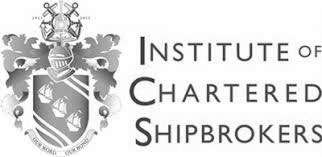Shipbrokers, intelligent anticipation and added value
Written by Karen May on 24th March 2022

Shipbrokers are often asked what they actually do. Typically, the question is posed by someone outside the industry, but occasionally it is asked by clients who want to know where the added value is. It’s a fair question and one that deserves to be answered.
The profession of Shipbroking goes back hundreds of years. Archives from the City of London in 1285 assert that "there shall be no brokers in the City except those who are admitted and sworn before the warden or mayor and alderman". This formality was done to ensure those who were licenced abided by the rules and there were sanctions if they did not. According to the Institute of chartered shipbrokers, this system lasted for over 6 centuries and gave rise to the term ‘honest broker’.
Shipbrokers introduce new business or vessels to a client who then makes use of their expertise and deep market knowledge to negotiate and conclude the best possible deal on behalf of that client. They also give contractual advice and undertake a substantial amount of post-fixture work. All this is carried out on a no-cure-no-pay basis. Shipbrokers needs to have a thorough knowledge of the contracts they use, access to a database with commercial and technical information on the vessels they trade, as well as having the skill to mediate between the contracting parties in a timely fashion. But where does it benefit the client?
The relationship between Broker and Client has evolved substantially since 1285 and is especially relevant in the modern world. For all the benefits of globalisation, much of the shipping market remains unregulated and can be a minefield for those engaged in it. The use of a reputable shipbroker with experience should ultimately lower the risk for the client.
This is perhaps one of the least understood or appreciated tasks of shipbroking. It is the art of anticipating what can go wrong the importance of which should not be underestimated. The broker protects the client from some of the market excesses that happen daily with unscrupulous players looking for any opportunity to make a fast buck.
Even when the other party is well known to the client, it must be remembered that the opposite number is solely there to protect the interests of their shareholders. That point is sometimes lost in the perceived camaraderie of a direct negotiation. You see, the broker is often the shock absorber to some of the more unrealistic or ill-informed demands that could jeopardise a negotiation – even though both sides want it to succeed.
Adding value should be the objective of all shipbrokers. The reduction of risk in protecting the client is a substantial part of that goal. The broker’s antenna should constantly scan for any pitfalls and issues that might affect their clients’ interests.
Intelligent anticipation is a good description of this as most clients are so busy with their day-to-day activities that they often have little time to see the problems that might occur in a negotiation. The experienced broker is seeing them daily.
As well as looking for opportunities, most shipbrokers ultimately act as a watchkeeper for their client and work tirelessly to that end. They give their clients a substantial amount of advice, ensuring their clients’ interests are protected. There is considerable value in this. As a result, many successful owners and charterers have a close relationship with the brokers they use, often developed over many years.
Some use an exclusive or preferred broker; others might have a small pool of preferred brokers, and some prefer to work with whoever is around. In all these scenarios, the relationship between the broker and client is paramount with trust being an essential element.
To conclude, the shipbroker has various daily tasks that support marketing, fixing, mediation and post-fixture work. These activities are performed daily and add value to the business on their own. But substantial value is added by the firewall of the shipbroker using intelligent anticipation and their sixth sense to protect the clients’ interests.
In 1285, shipbroking was a noble profession with the intent to protect their clients from the unpredictable market. Nearly 750 years later this aspiration still remains the aim of most shipbrokers.
Recent News
-
04
Aug 2022All change at Century Marine Services Limited
Century Marine Services Limited is pleased to announce that Luke Hughes has...
-
24
Mar 2022Shipbrokers, intelligent anticipation and added value
Shipbrokers are often asked what they actually do. Typically, the question...
-
04
Jan 2022Hollywood comes knocking for Century Marine
Century Marine are proud to be involved with the latest Hollywood blockbuster...
-
26
Feb 2021UK Chamber of Shipping Virtual Conference
If you missed the UK Chamber of Shipping Towage Panel you can catch up on...
-
26
Feb 2021Workboat Association Members Profile of Nick Price
This week the Workboat Association has written a Members Profile on our own Nick...
.jpg)
.jpg)

